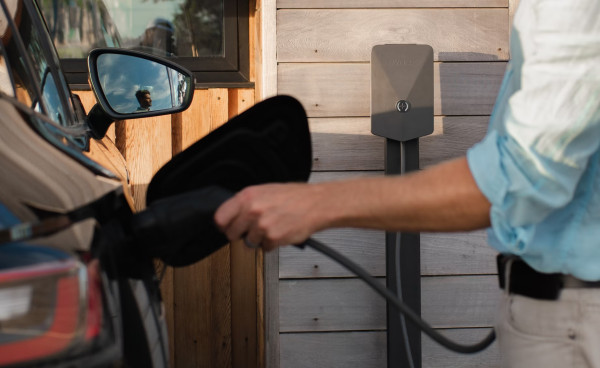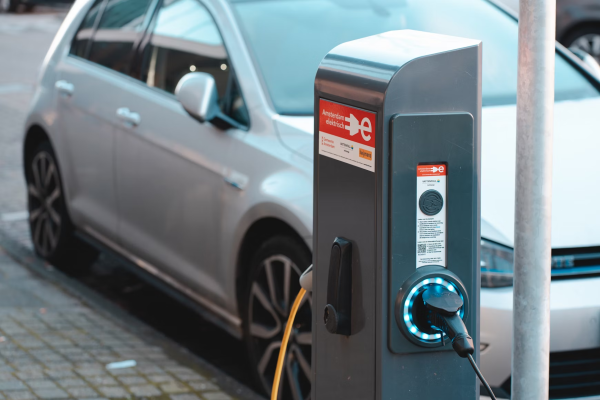Charging an electric vehicle (EV) at home is convenient and cost-effective. However, when you charge can impact factors like battery health, electricity costs, and grid stability.
This comprehensive guide examines when the best time is to charge your EV at home based on your goals, electricity rates, lifestyle needs, and more.
Electricity Rates and Cost Savings
For many EV owners, a top priority is saving money on fuel costs. Charging during off-peak hours when electricity rates are lower is the best way to maximize savings.
Understanding On-Peak vs. Off-Peak Hours
Electricity rates fluctuate throughout the day based on demand on the grid. Hours of peak demand, called on-peak hours, have the highest rates. Off-peak hours have lower demand and cheaper rates.
Exact hours vary by location and utility company but generally:
- On-peak hours are weekday mornings to evenings, approximately 7 AM – 11 PM
- Off-peak hours are weeknights 11 PM – 7 AM and all day weekends and holidays

EV Electricity Rate Plans
Many utilities offer special EV charging rates with cheaper electricity during off-peak hours to incentivize overnight charging. Rates may be 50-60% lower per kWh.
For example, Pacific Gas & Electric in California offers an EV-2A rate plan with $0.16 per kWh from 12 AM – 7 AM every day. Their standard rate during peak hours is $0.36 per kWh.
Charging Schedule for Cost Savings
To maximize savings on electricity:
- Charge during off-peak hours as much as possible
- Avoid charging multiple times per day
- Charge just enough to meet daily driving needs
Using lower-cost charging overnight helps reduce costs for fueling your EV over time.
Battery Health and Longevity
In addition to cost savings, optimizing when and how often you charge can also prolong the lifetime of your EV battery.
Depth of Discharge
Fully depleting your battery puts strain on battery cells. Regularly discharging below 20% capacity can degrade the battery faster over time.
To avoid deep discharging, connect your EV when the state of charge falls between 20-30%. This helps reduce deterioration from very low and very high states of charge.
Partial vs. Full Charging
While occasional full charges are fine for longer trips, most experts recommend partial charging for daily use. Keeping your state of charge between 30-80% reduces strain on the battery. Partial charges cause fewer chemical reactions and heat buildup compared to constant full charges. Less stress per charge helps extend the battery’s lifespan.
Charge Frequency
Charging too often can also degrade your battery faster. Each charging cycle counts toward the total lifetime cycles of your battery.
To conserve cycles, avoid frequent small top-ups. Charge higher amounts less often to allow fewer cycles for the same miles driven.
Charging Based on Lifestyle Needs
Along with battery care and costs, consider when charging best fits with your lifestyle.
Overnight Charging
For most EV owners, overnight charging provides 8+ hours to replenish the range. Smart chargers allow you to schedule overnight charging to start and finish by set times.
Slow overnight Level 1 charging is better for your battery rather than quick daytime fast charging. Coordinating with off-peak rates maximizes cost savings as well.
Workplace Charging
If available, workplace charging lets you conveniently add range while at the office for 6-8+ hours. This avoids needing to charge once home.
Check policies on access, payment methods, reimbursement rates if charging is fee-based, and schedule coordination if chargers are shared.
Public Charging
When doing activities away from home, look for compatible public charging stations to conveniently top up your EV.
Apps like PlugShare help locate stations and provide useful details on hardware, pricing, availability, and reviews. Schedule extra time to account for wait times or charging duration.

Supporting the Electrical Grid
Managing when you charge also helps balance electrical loads and prevent peak demand spikes for utilities.
Avoid Peak Hours
Charging EVs during peak hours places more strain on the grid, increasing the risks of brownouts. Unless urgently needed, charge outside of peak daily hours when electricity demand is lower.
Match Charging to Renewables
If possible, align charging times to when renewable energy production is higher in your region. Apps like SmartCharge show the best times for green charging based on renewable energy mixes.
Coordinated charging helps utilities integrate cleaner energy and transition toward reduced emissions.
Key Considerations When Charging at Home
Finding the optimal home charging schedule depends on several factors:
- Electricity rates – Enroll in special EV plans with cheaper overnight charging
- Battery health – Avoid frequent full charges/deep discharging and minimize charge cycles
- Lifestyle fit – Pick convenient times matching daily driving needs and schedule
- Grid stability – Charge during lower-demand evening/nighttime hours to reduce strain
Using smart chargers or timers allows you to easily set a routine that fits your individual needs and priorities.
Frequently Asked Questions
Is it bad to charge my EV every night?
Unless required by your daily driving needs, charging every night can prematurely degrade your EV battery. Constant full recharges cause more strain over time compared to partial refills 2-3 times a week.
Is Level 1 or Level 2 charging better for my battery?
In general, Level 1 charging is considered healthier for everyday use. The slower AC puts less daily stress on batteries versus quicker DC fast charging. Level 2 charges faster but still uses gentler AC without detriment to batteries.
When is the cheapest time to charge?
The cheapest electricity rates are typically available overnight during off-peak hours between 12-5 AM. Coordinate charging to start and finish during this window to maximize cost savings. Check your utility company’s special EV rate plans for exact cheaper charging times in your area.
Should I charge 100% before a long trip?
Yes, for optimal range it helps to charge your EV battery to 100% before a longer drive. Avoid making a habit of full charges but for periodic long-distance trips, a full battery provides peace of mind.
Just take care not to frequently discharge below 20% at your destination before locating a charger to avoid battery degradation from a low state of charge.





